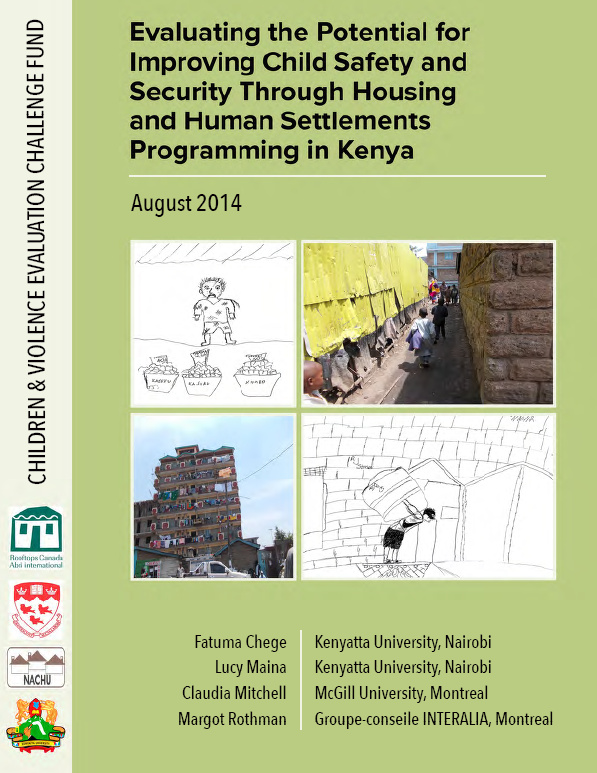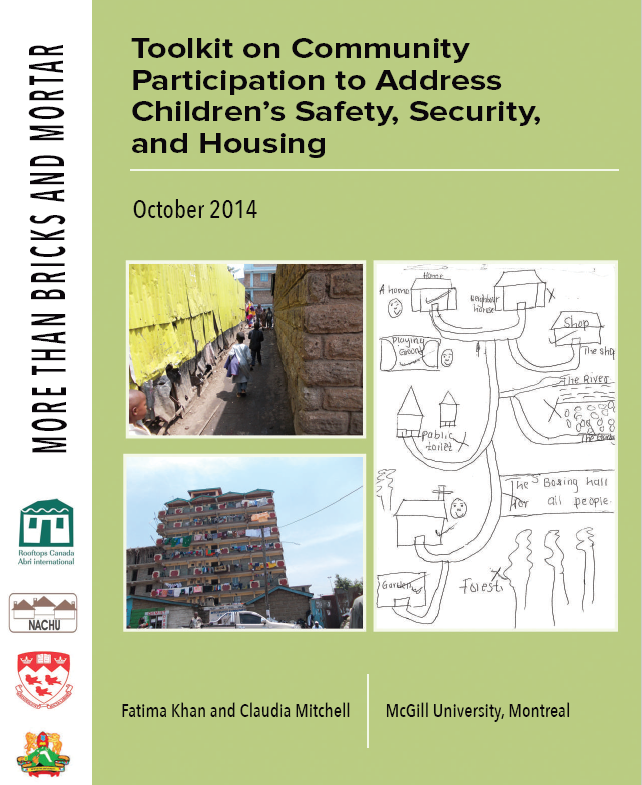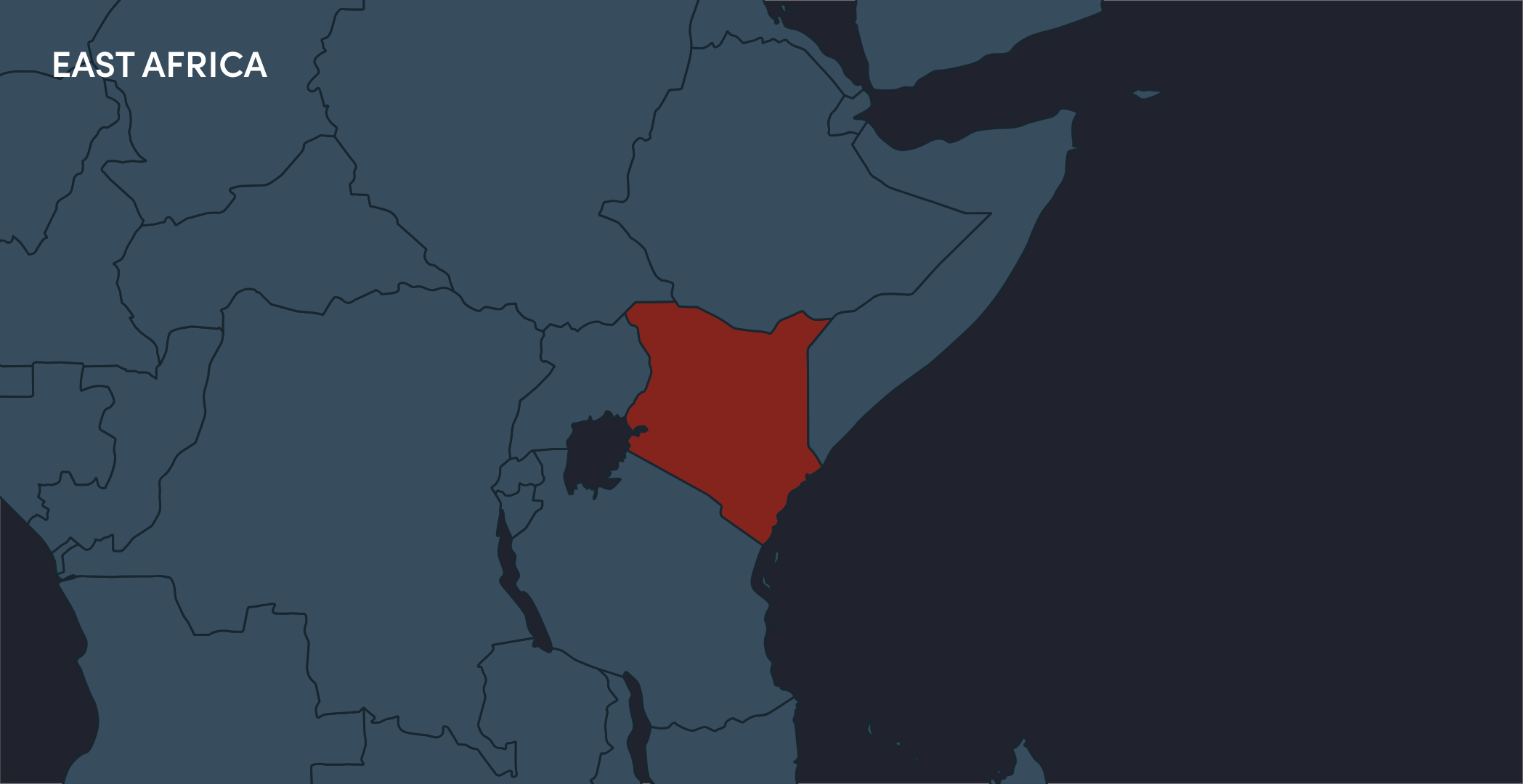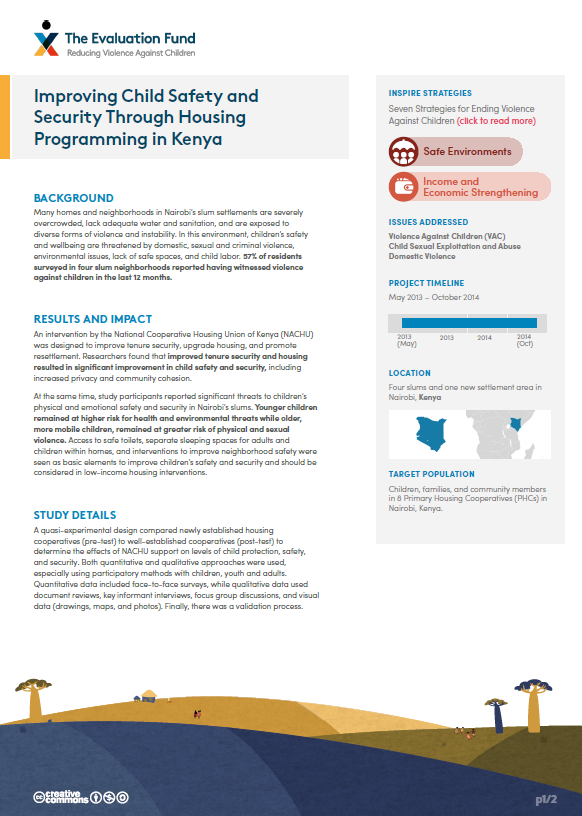Many homes and neighborhoods in Nairobi’s slum settlements are severely overcrowded, lack adequate water and sanitation, and are exposed to diverse forms of violence and instability. In this environment, children’s safety and wellbeing are threatened by domestic, sexual and criminal violence, environmental issues, lack of safe spaces, and child labor. 57% of residents surveyed in four slum neighborhoods reported having witnessed violence against children in the last 12 months.
An intervention by the National Cooperative Housing Union of Kenya (NACHU) was designed to improve tenure security, upgrade housing, and promote resettlement. Researchers found that improved tenure security and housing resulted in significant improvement in child safety and security, including increased privacy and community cohesion.
At the same time, study participants reported significant threats to children’s physical and emotional safety and security in Nairobi’s slums. Younger children remained at higher risk for health and environmental threats while older, more mobile children, remained at greater risk of physical and sexual violence. Access to safe toilets, separate sleeping spaces for adults and children within homes, and interventions to improve neighborhood safety were seen as basic elements to improve children’s safety and security and should be considered in low-income housing interventions.
This initiative examined a housing and community development initiative for children, youth, and adults in four slum settlements in and around Nairobi, Kenya. National Cooperative Housing Union of Kenya (NACHU) supported eight Primary Housing Cooperatives (PHCs) in these areas to improve tenure security, housing, and living conditions. Specifically, NACHU provided housing microfinance, technical support, and settlement relocation and upgrading services. By improving living conditions and facilitating community development, the intervention hoped to reduce family stressors and violence against children. Loans were also provided as a way to improve family savings and livelihoods, and develop more sustainable communities.
A quasi-experimental design compared newly established housing cooperatives (pre-test) to well-established cooperatives (post-test) to determine the effects of NACHU support on levels of child protection, safety, and security. Both quantitative and qualitative approaches were used, especially using participatory methods with children, youth and adults. Quantitative data included face-to-face surveys, while qualitative data used document reviews, key informant interviews, focus group discussions, and visual data (drawings, maps, and photos). Finally, there was a validation process.
Community members felt that while improvements to housing tenure, structures and amenities are important for child protection, creating safe neighborhoods in which children live has a greater bearing on their overall security.
Adequate and ethical child participation is crucial. Videos, drawings, photos, and quotations from children were powerful tools to raise awareness of VAC and to evoke concern among adults regarding daily life for children living in the slums.
Loan payment mechanisms must be carefully designed and monitored so the imperative of earning income for basic needs and paying off loans does not lead to families remaining in unsafe slums where their income sources are located rather than relocating to their new housing.
In terms of data collection, visual participatory methods yield more meaning than text alone. Additionally, adult, youth and child participants were not reticent to address sensitive issues and welcomed the opportunity to collectively participate in examining their situation.
In terms of research design, evaluating a program for VAC outcomes that was not designed specifically for VAC prevention contributes to breaking down silos and looks at the issue of violence across sectors.
Barry Pinsky
Executive Director
Rooftops Canada – Abri International
barry@rooftops.ca
rooftops.ca

Evaluating the Potential for Improving Child Safety and Security through Housing and Human Settlements Programming in Kenya

Toolkit on Community Participation to Address Children’s Safety, Security, and Housing






